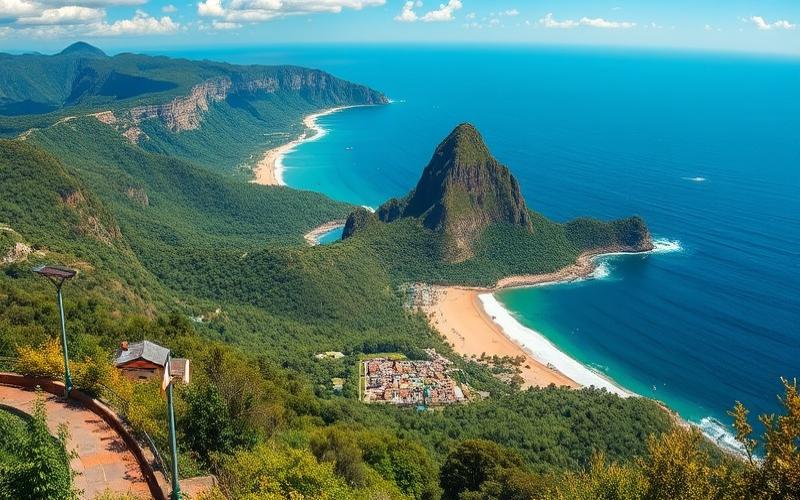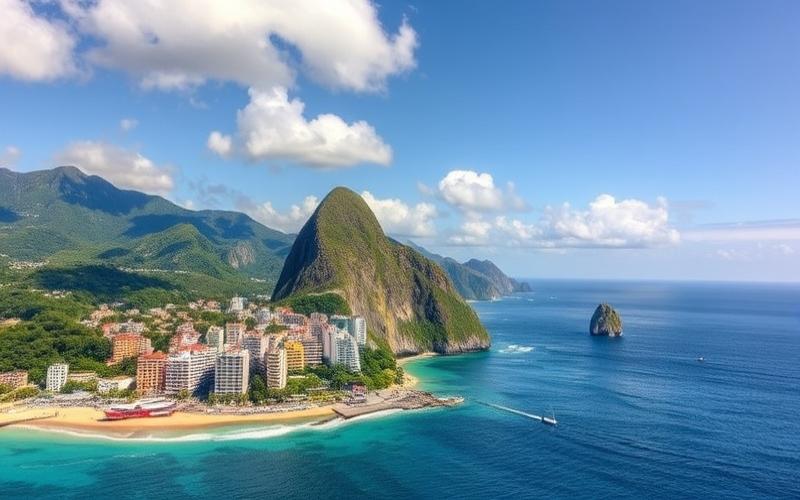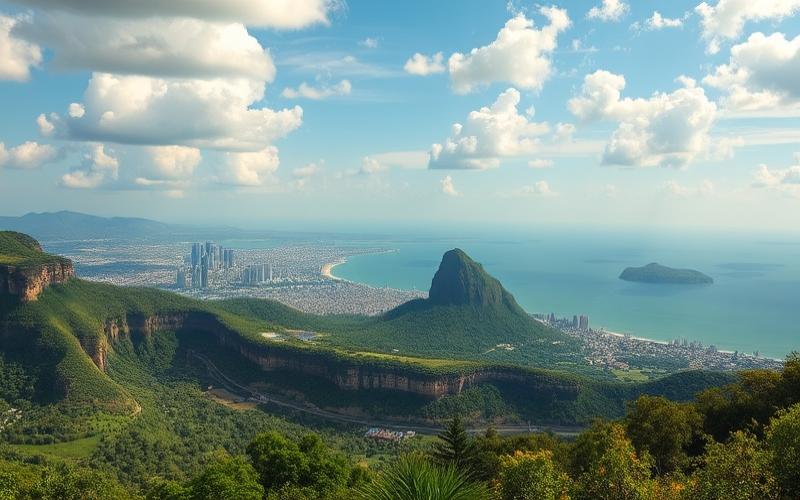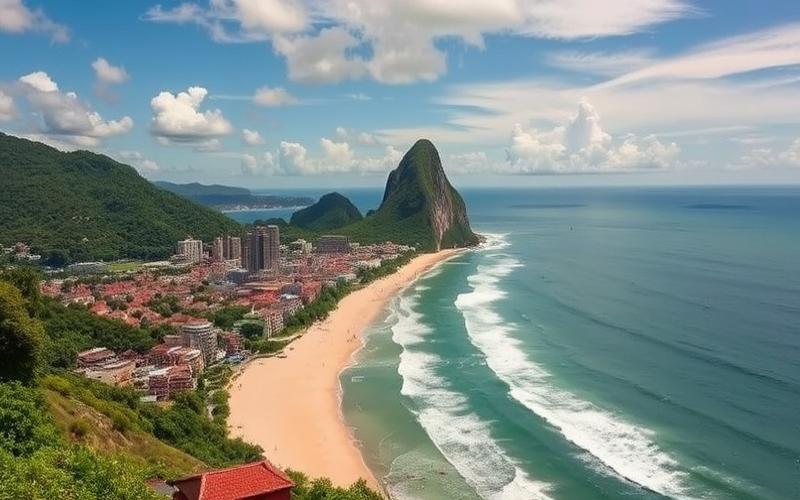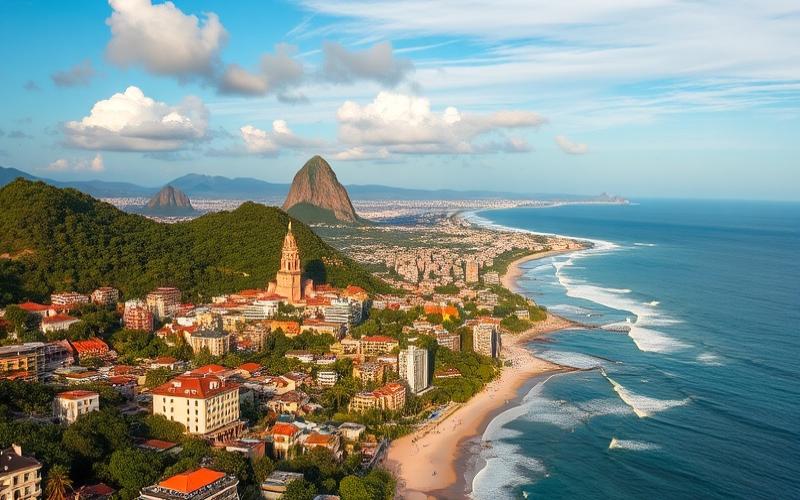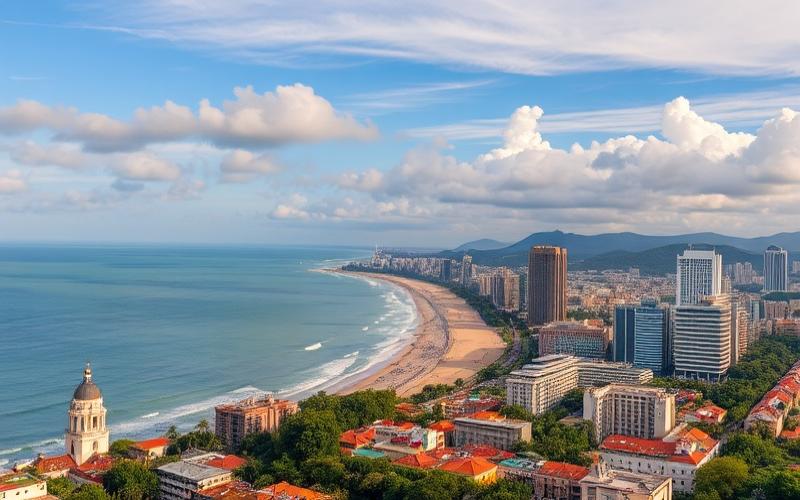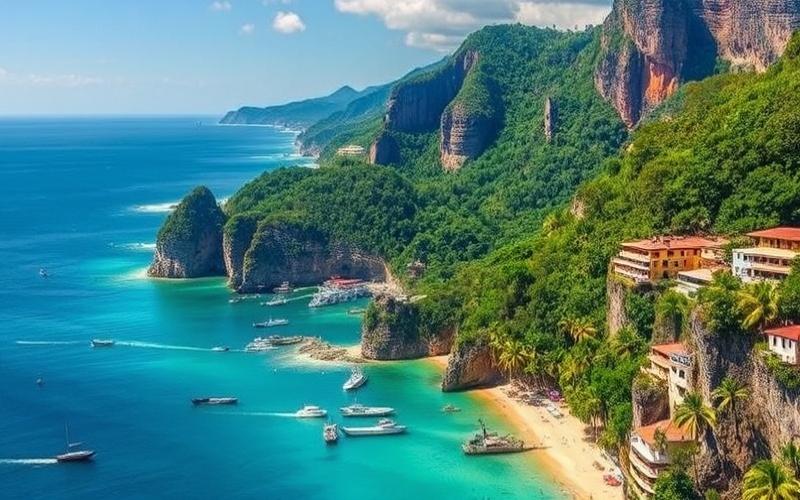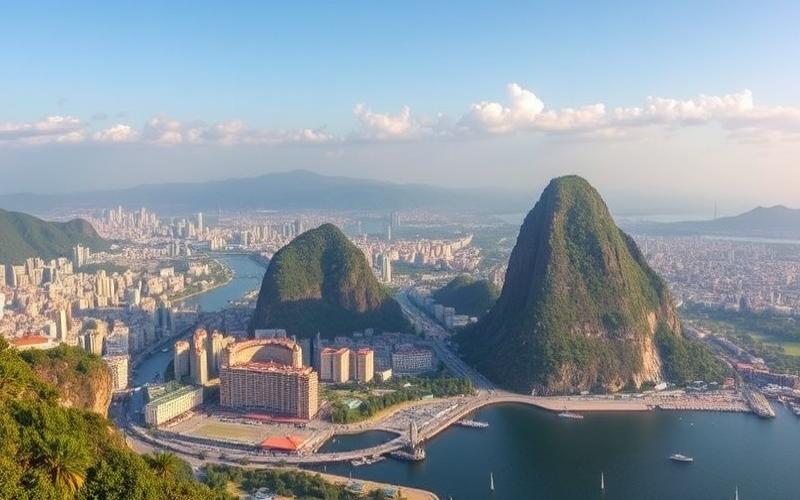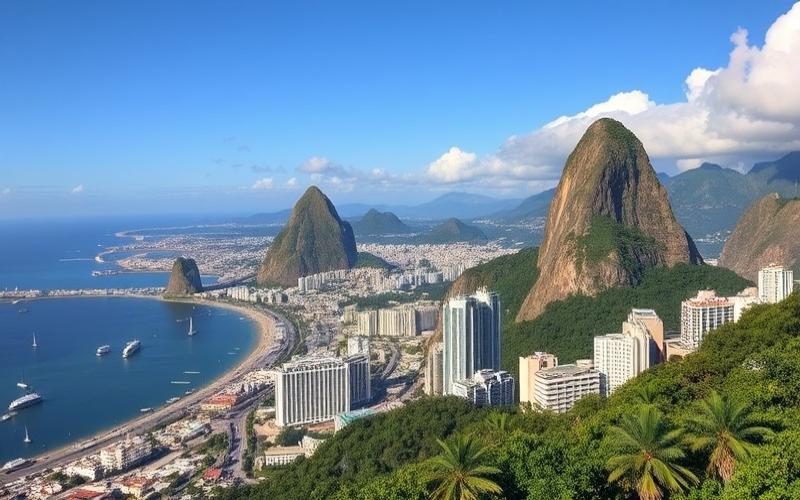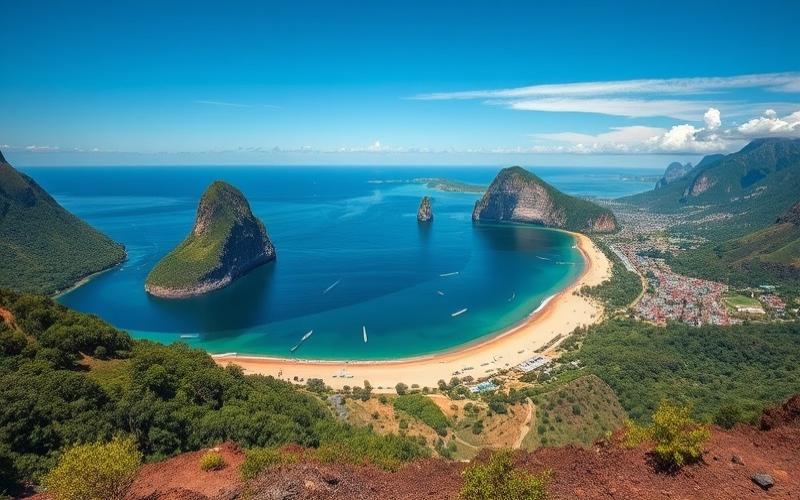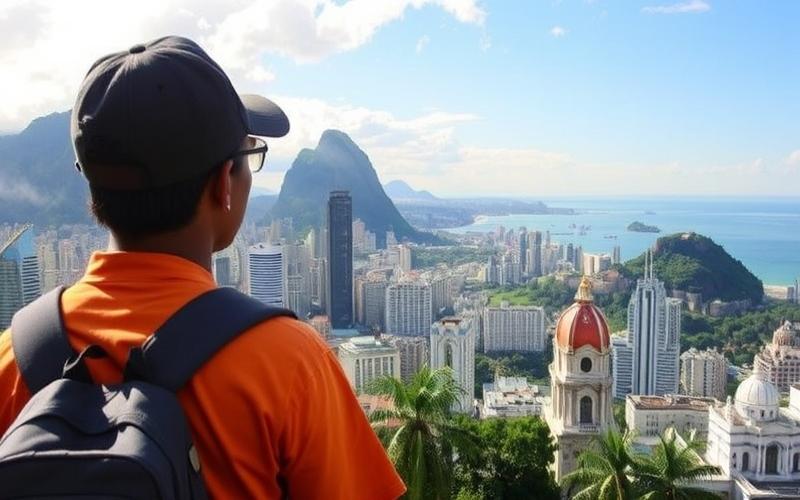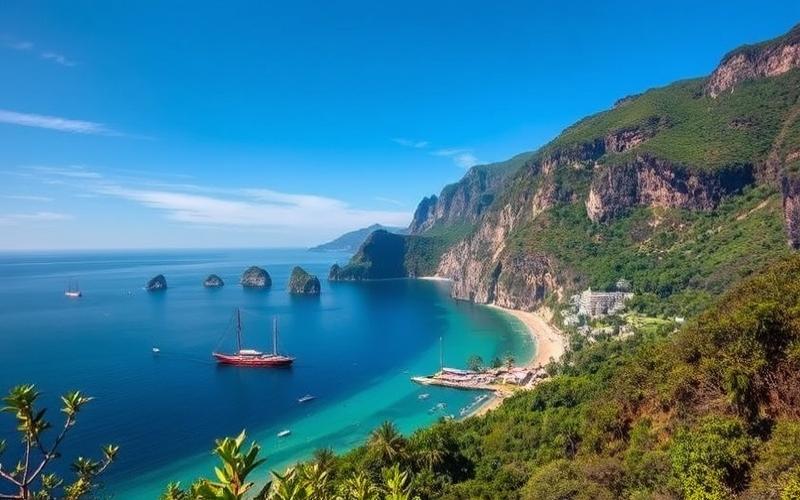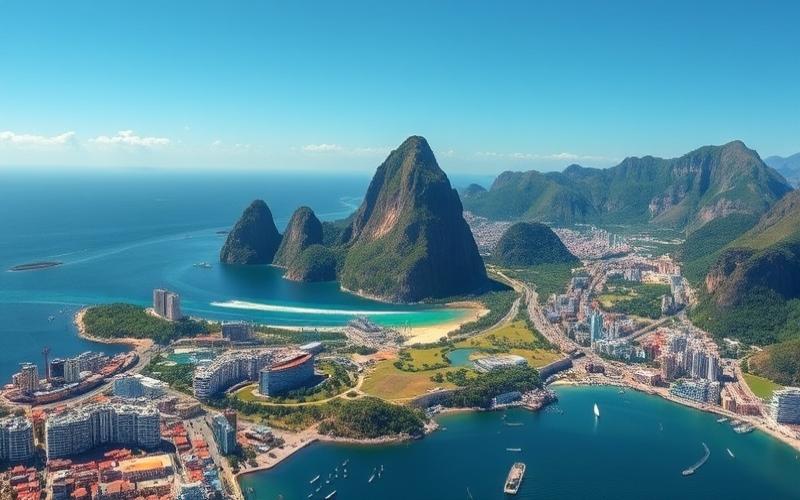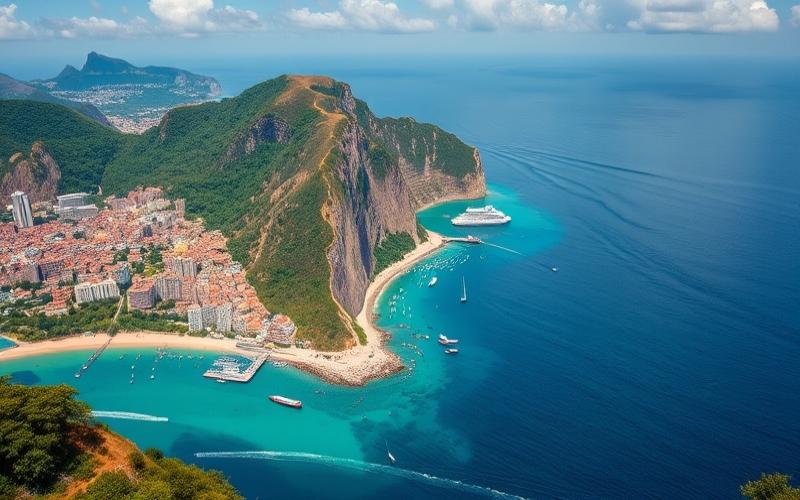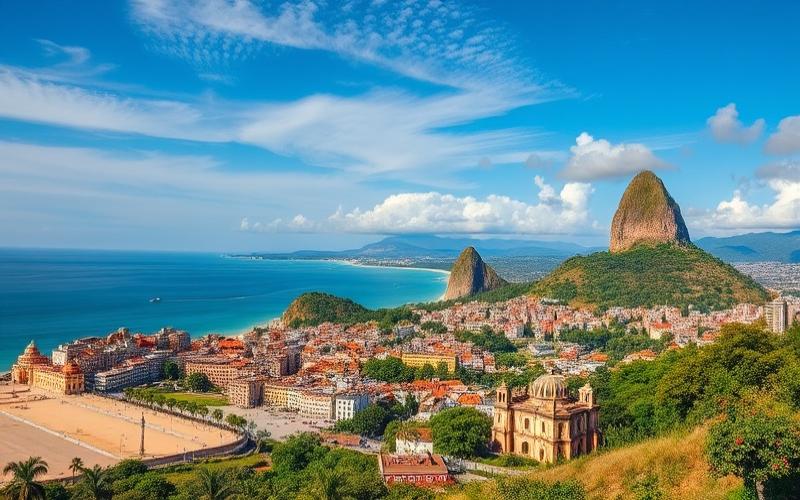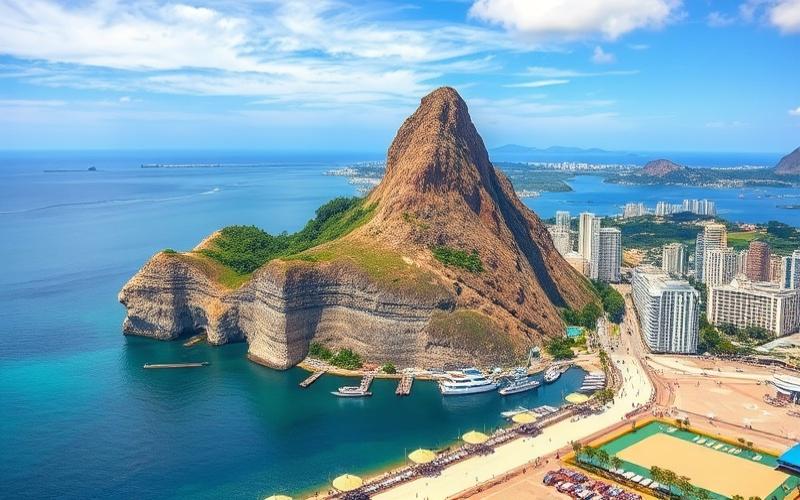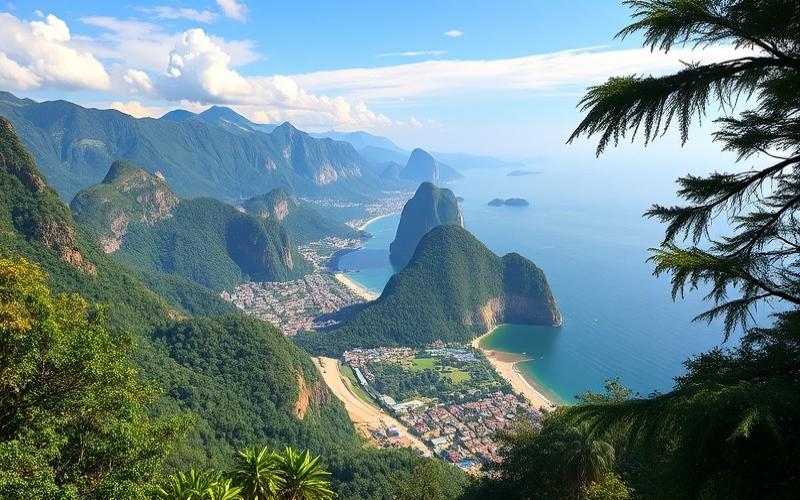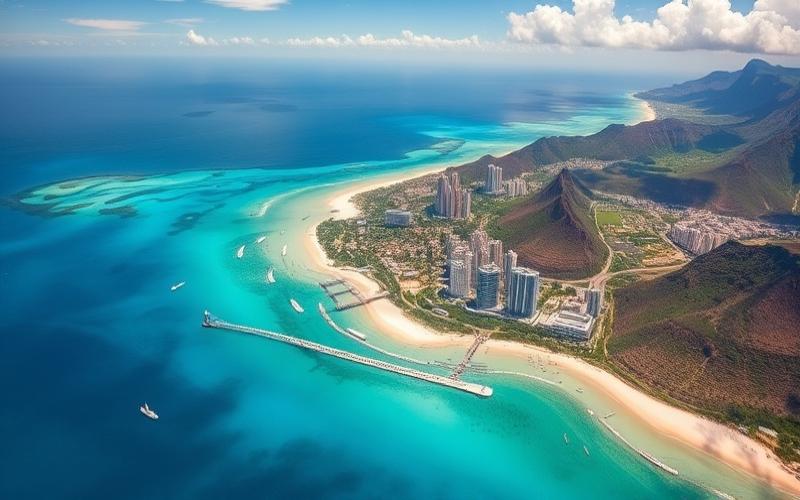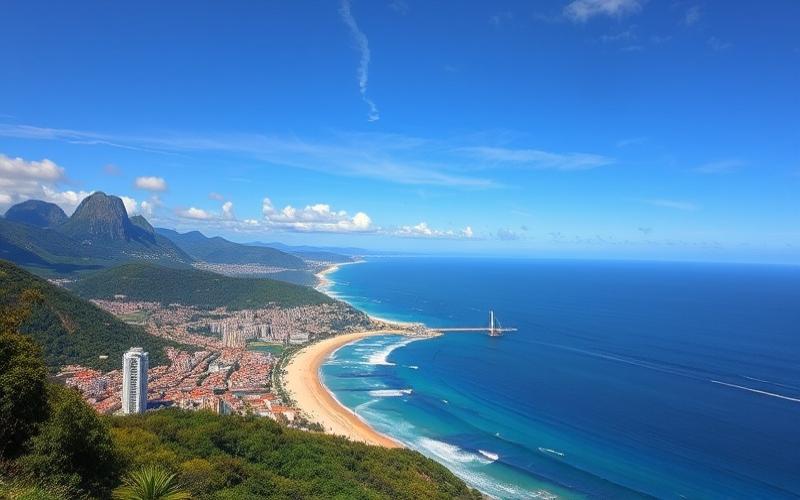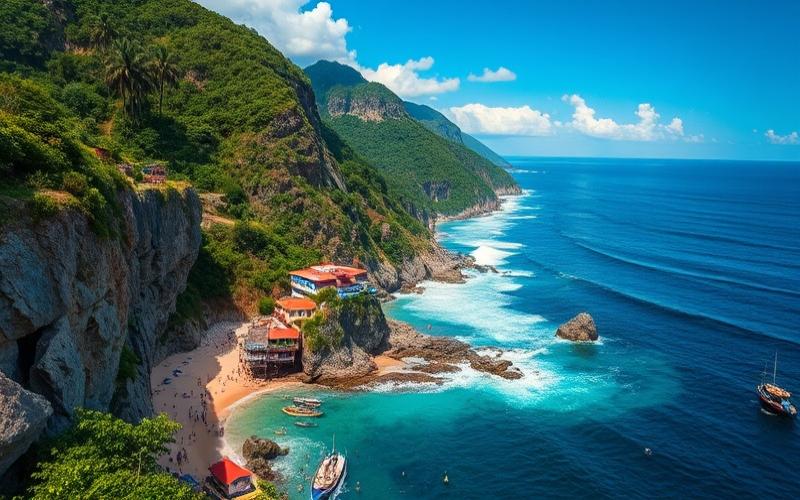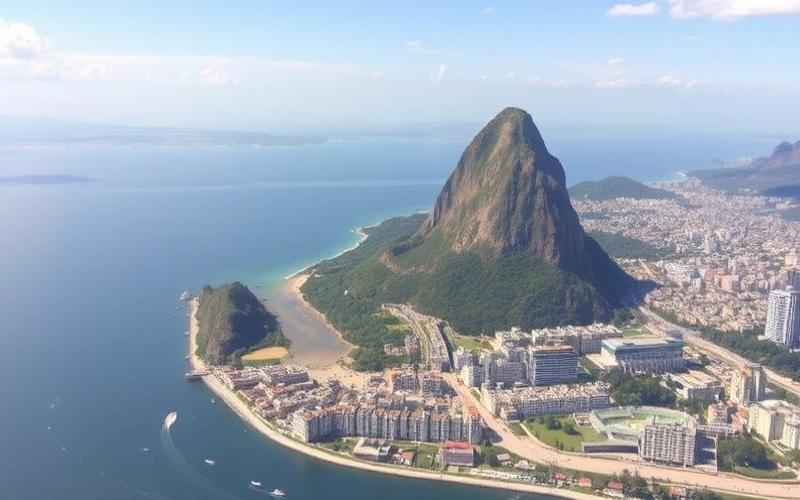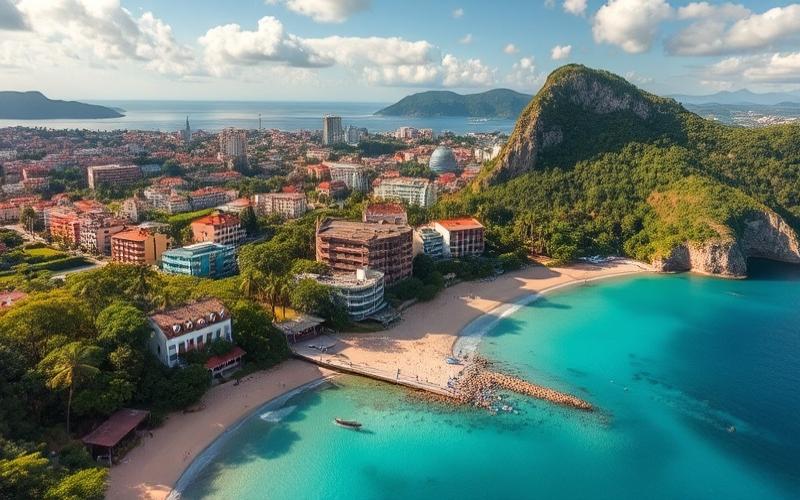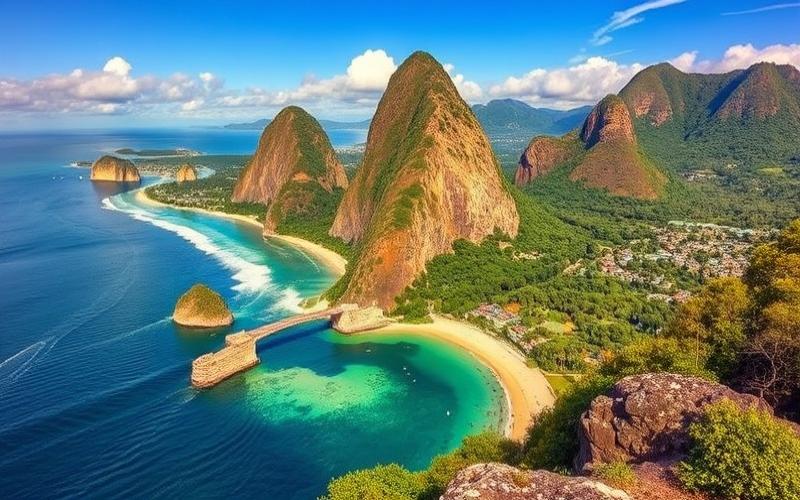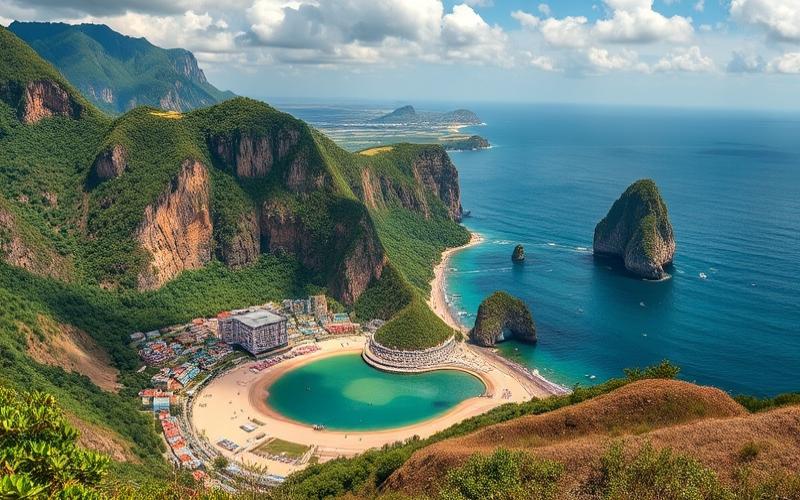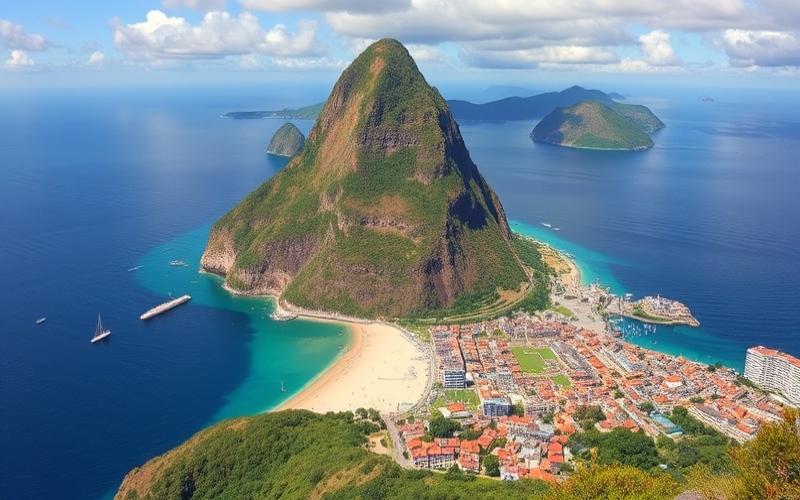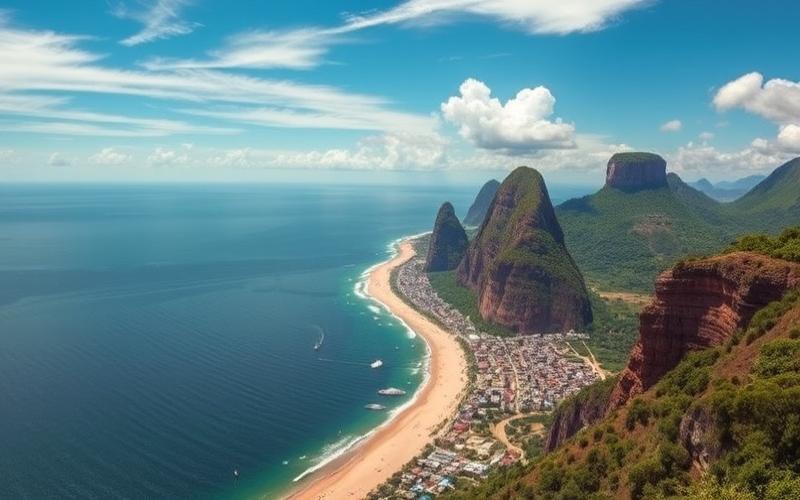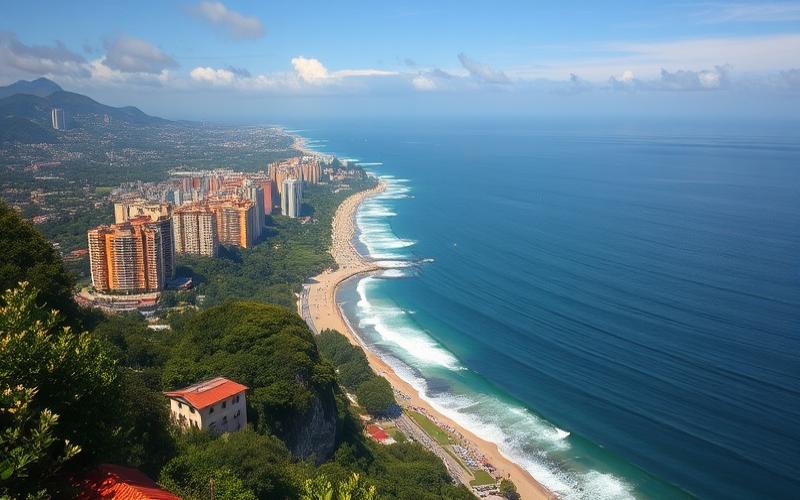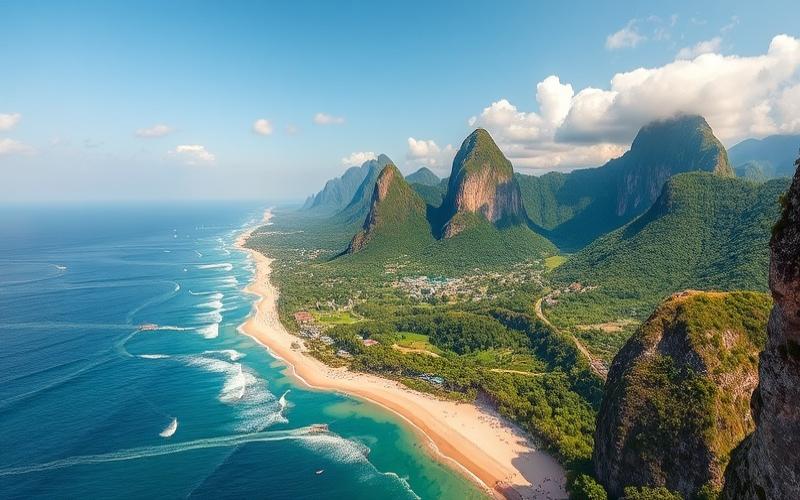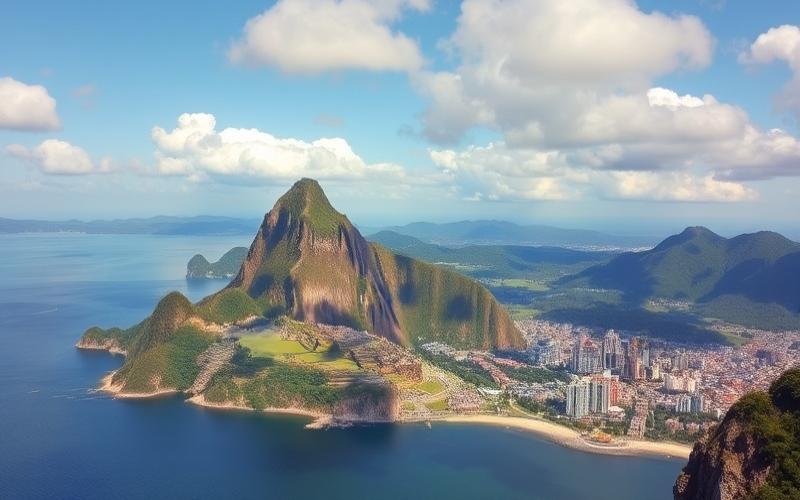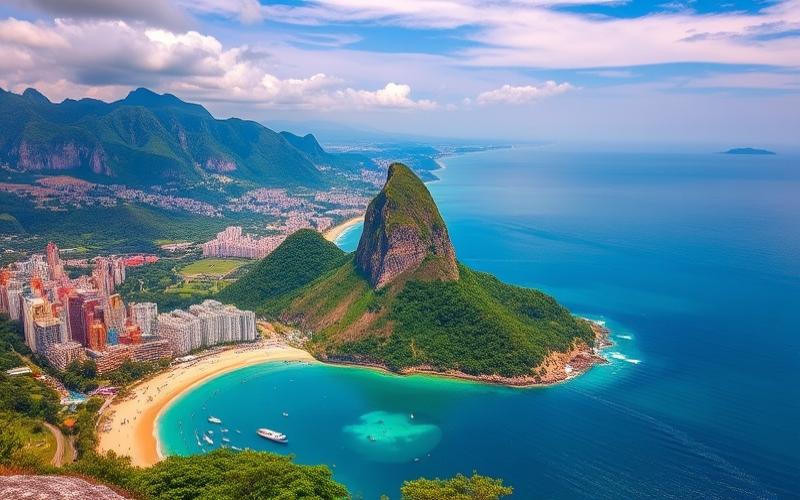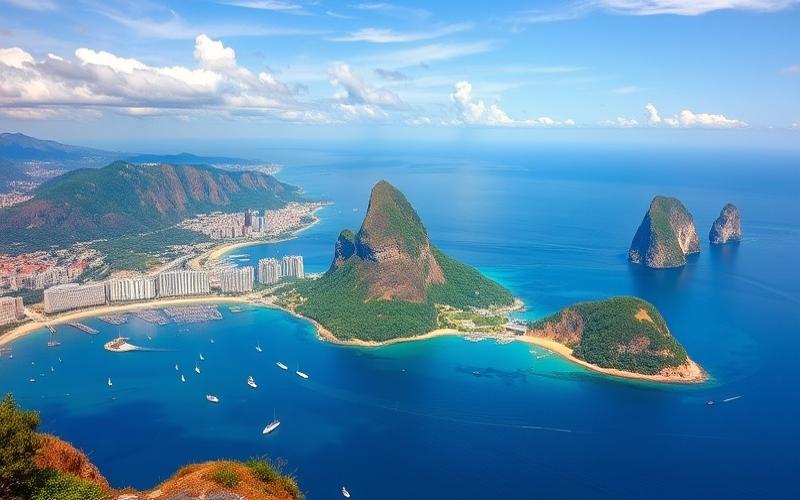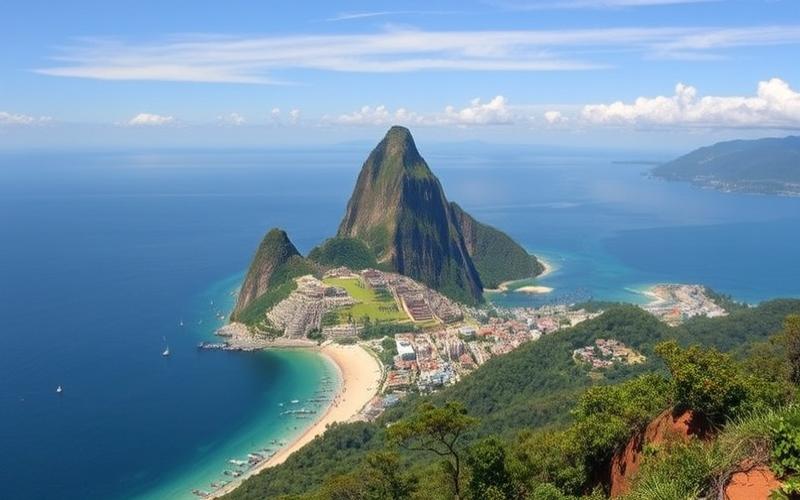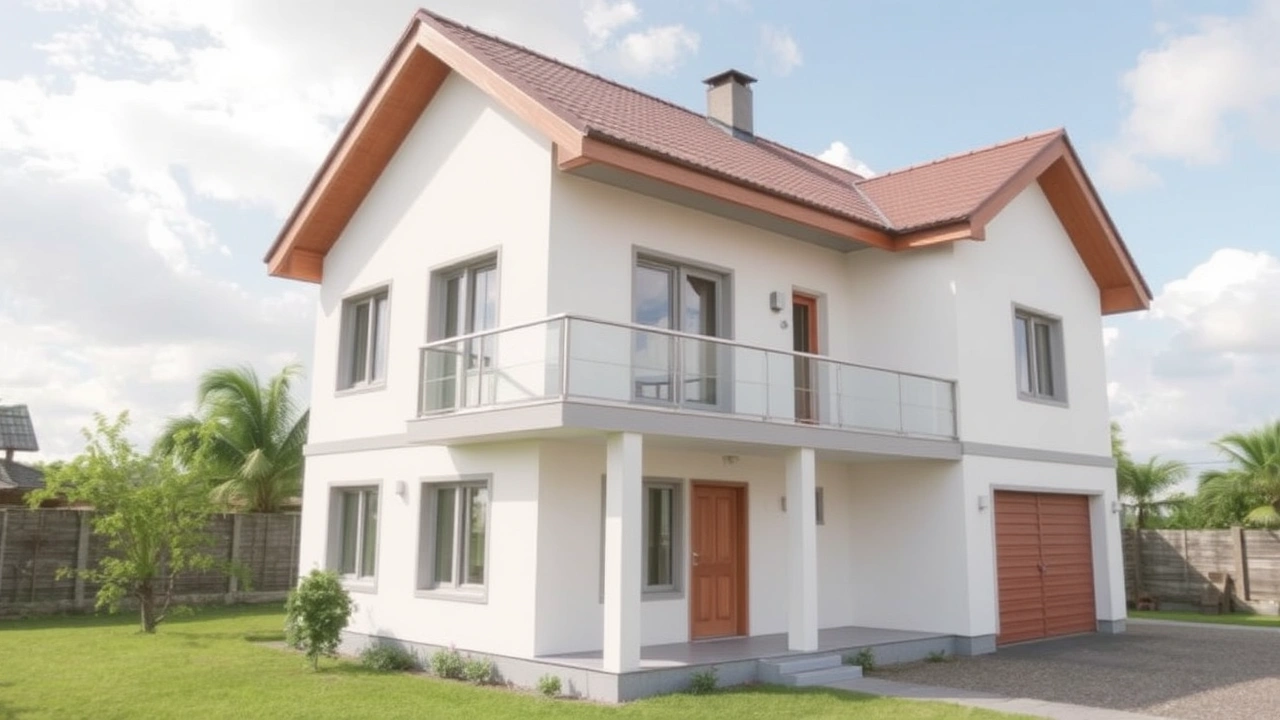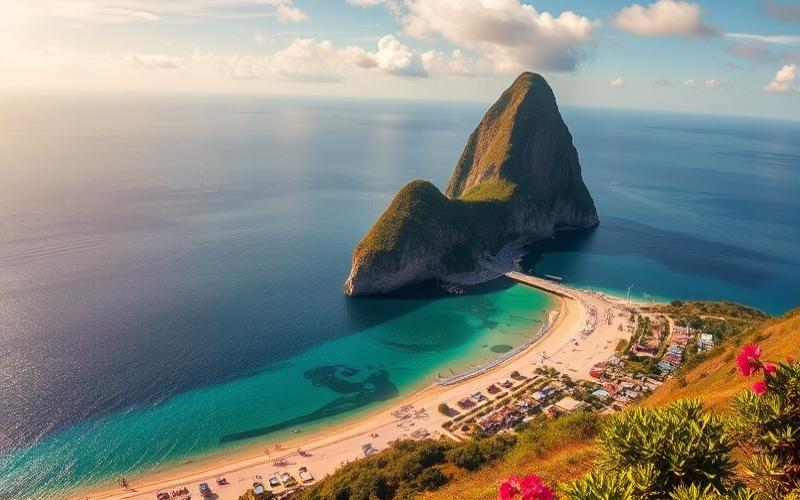
 Published on and written by Cyril Jarnias
Published on and written by Cyril Jarnias
Foreigners’ rights in Brazil constitute a complex and constantly evolving field, where issues related to appeals against administrative decisions occupy a central place. Between the challenges of enforcing immigration laws and harmonizing them with human rights, the ability of foreigners to challenge unfavorable decisions becomes a crucial issue.
This aspect of law highlights the available procedures to ensure fair justice as well as the potential obstacles encountered by foreigners in their quest for recognition and protection of their rights.
In this article, we will examine the mechanisms in place, the roles of various authorities involved, and potential reforms to strengthen transparency and accessibility to these essential remedies.
Understanding Foreigners’ Rights in Brazil
Overview of main laws and regulations
- The Immigration Law (Lei de Imigração, Law No. 13.445/2017) governs the entry, residence, rights and duties of foreigners in Brazil. It replaced the former Foreigners’ Statute of 1980 and aims to guarantee the protection of fundamental rights, non-discrimination and the integration of migrants.
- Decree No. 9.199/2017 specifies the application of the law, including conditions for entry, stay, expulsion and regularization.
- Since 2017, the permanent visa category has been eliminated. Foreigners must choose between a temporary visa or a residence permit.
Main types of visas and residence permits
| Type of visa or permit | Duration | Main purpose | Specific conditions |
|---|---|---|---|
| Visitor visa | ≤ 90 days | Tourism, business, transit | Non-renewable, no work allowed |
| Temporary visa | 1 to 2 years | Work, studies, research, family reunification | Employment contract, university enrollment |
| Residence permit | Variable | Long-term settlement, regularization | Job offer or humanitarian situation |
| eVisa (starting 2025 for US, CA, AU) | ≤ 90 days | Tourism, business | Mandatory digital procedure |
Note: Some bilateral agreements may facilitate or modify these requirements for certain nationalities.
Legal obligations of foreigners
- Possession of a valid passport and appropriate visa or permit for the situation.
- Registration with the Federal Police to obtain the National Migration Registry (RNM).
- Compliance with Brazilian laws, payment of taxes and potential fines.
- Legalization and official translation of foreign documents (apostille and sworn translation), except for exceptions provided by international agreements.
- Obligation to update status in case of changes in professional, family situation or address.
Fundamental rights of foreigners
Foreigners enjoy the same civil, social and cultural rights as Brazilian citizens, except for exceptions provided by law (e.g., limited political rights).
- Access to public health system (SUS), public education, justice and social assistance.
- Protection against discrimination, arbitrary detention and refoulement, in accordance with the Brazilian Constitution and international conventions.
| Rights | Foreigners | Brazilian citizens |
|---|---|---|
| Public health | Yes | Yes |
| Public education | Yes | Yes |
| Work | Yes* | Yes |
| Political rights | No | Yes |
| Justice/appeals | Yes | Yes |
*Subject to appropriate visa or permit.
Protection against expulsion and arbitrary detention
- The law guarantees due process before any expulsion: right to defense, administrative appeal, prohibition of collective expulsion.
- Vulnerable persons (refugees, minors, persons in stable family situations) benefit from enhanced protections.
- Detention of foreigners is regulated: it cannot be arbitrary and must respect fundamental rights (access to a lawyer, information about rights).
Recent statistics on foreign population
The foreign population in Brazil has experienced growth, with marked immigration since 2011 from the Global South (Haitians, Venezuelans, Colombians, Senegalese, Peruvians…).
Recent estimates indicate more than 1.3 million foreigners legally residing in Brazil, with a significant portion consisting of refugees and economic migrants.
Access to public services
- Health: universal and free access to the public health system (SUS) for all residents, regardless of migration status, once registered.
- Education: access to public school for foreign children, including those in irregular situations; enrollment possible with RNM or identity document, and sometimes even without.
- Social services: access to social assistance, free legal aid and inclusion programs, subject to administrative registration.
Important note
Legal status influences access to certain rights: a foreigner in irregular situation may encounter difficulties accessing certain services, obtaining formal employment or benefiting from complete social protection.
Regularization procedures are encouraged to guarantee full enjoyment of rights.
Good to know:
The 2017 Immigration Law guarantees foreigners several rights similar to those of citizens, but access to health and education services may vary depending on residence status. Be sure to know your specific legal obligations to avoid risks of expulsion or arbitrary detention, especially if you hold a temporary visa.
Administrative Decisions in Immigration Matters
The legal framework for administrative decisions in immigration matters in Brazil is mainly governed by Law No. 13.445 of May 24, 2017 (Migration Law) and its implementing decrees, particularly Decree No. 9.199 of November 20, 2017. This legislation aims to guarantee the fundamental rights of foreigners while regulating their entry, stay and exit from Brazilian territory.
- Visa applications:
- Temporary visa (work, studies, family reunification)
- Visitor visa (tourism or business for less than 90 days)
- Abolition of permanent visa in favor of renewable residence permits
- Residence permits / authorization:
- For foreigners already in the territory wishing to regularize their situation
- Renewable or indefinite permit for certain specific cases
- Expulsions and entry refusals:
- Expulsion for non-compliance with migration laws or threat to public order
- Immediate entry refusal for travelers without required visa according to reciprocity policy
- Presentation of a valid passport
- Proof related to the purpose of stay (employment contract, university enrollment, family ties)
- Clean criminal record or absence of serious conviction in some cases
- Compliance with regulatory deadlines for filing and regularization of applications
- Meeting specific requirements provided by migration law
Recent concrete example:
Due to the COVID-19 pandemic, decree Portaria nº 25/2021-DIREX/PF extended until March 15, 2022 the deadline allowing foreigners whose documents expired after March 16, 2020 to regularize their status without penalty.
Institutions involved in the decision-making process:
| Institution | Main role |
|---|---|
| Ministry of Justice | General definition of migration policies |
| Federal Police | Individual processing of applications; border control |
| Brazilian Consulates | Initial visa issuance abroad |
| National Immigration Council | Strategic support; interinstitutional coordination |
Procedural rights granted to foreigners during an administrative decision:
- Official written motivated notification in case of acceptance or refusal/unfavorable decision
- Formal right to administrative appeal against any negative decision
The appeal must be filed within a deadline set by specific regulations.
Legal example: A foreigner who received a refusal regarding an authorization application can appeal to the competent administration with additional supporting documents.
In expulsion matters, prior notification mandatory except in proven emergency; right to appeal before execution except for strictly regulated exceptions.
The Migration Law thus aims for a balance between international protection – particularly that granted to refugees – and sovereign control exercised through specialized institutions. The procedures generally guarantee administrative transparency and effective possibility for each concerned foreigner to exercise their rights against decisions rendered.
Summary table – Main applicable laws:
| Legal text | Main subject |
|---|---|
| Law No. 13.445/2017 | General principles & migration categories |
| Decree No. 9.199/2017 | Practical modalities & operational criteria |
| Portaria nº25/2021-DIREX/PF | Exceptional extension due to COVID |
Recent examples show that these texts are regularly adapted so that procedures remain accessible even in exceptional contexts (e.g., pandemic).
Good to know:
In Brazil, administrative decisions in immigration matters, such as visa applications or expulsions, are governed by federal law 13.445/2017 and examined by institutions like the Federal Police and the National Immigration Council; any affected person has the right to be notified and to appeal.
Possible Remedies for Expatriates
Expatriates in Brazil often face various administrative decisions that impact their status and rights. Here is a summary of possible remedies within the framework of foreigners’ rights:
Main types of decisions challenged by expatriates
- Visa refusal: refusal to grant temporary, permanent or work visa.
- Expulsion decisions: removal measures ordered for administrative or judicial reasons.
- Non-recognition of specific statuses: refusal of family reunification, refugee status or permanent residence.
- Cancellation or non-renewal of CRNM (National Migration Registration Card).
Available appeal channels
Administrative appeal
- Hierarchical appeal to the authority that made the decision or their superior (e.g., Ministry of Justice, Federal Police).
- Procedure: filing a motivated case, often via the MigranteWeb platform or directly with the Federal Police.
- Deadlines: generally between 10 and 30 days after notification of the decision, varying according to the nature of the appeal and the concerned institution.
Judicial appeal
- Appeal before federal courts to challenge the legality of an administrative decision (visa refusal, expulsion, etc.).
- Procedure: filing a legal action (amparo or specific appeal) with possibility of provisional measures (suspension of expulsion, for example).
- Deadlines: must be respected quickly, often up to 60 days for certain specific actions; statute of limitations depends on the type of act challenged.
| Type of appeal | Deadline to respect | Competent institution |
|---|---|---|
| Administrative appeal | 10 to 30 days | Ministry of Justice, Federal Police |
| Judicial appeal | 15 to 60 days | Federal Court, Federal Supreme Court |
Legal aid and associative support
Legal aid
Expatriates without resources can benefit from free legal assistance from federal public defenders (Defensoria Pública da União).
This aid covers drafting appeals, representation before courts and administrative mediation.
Non-governmental organizations
Several NGOs offer legal, social and administrative support:
- Caritas Brasil: assistance to refugees and migrants.
- Missão Paz: legal support, social integration.
- Instituto Migrações e Direitos Humanos: support on migrants’ rights.
- Justiça Global: monitoring of fundamental rights and strategic litigation.
Recent jurisprudence examples
| Year | Jurisdiction | Notable decision |
|---|---|---|
| 2022 | Federal Regional Court | Annulment of an expulsion for lack of motivation, judge requiring individualized justification. |
| 2023 | Federal Supreme Court | Suspension of a family visa refusal for violation of right to family life (constitutional principle). |
| 2024 | Federal Court of São Paulo | Recognition of right to legal aid for an expatriate without resources, even in irregular situation. |
Additional important information
- Most procedures and appeals may require sworn translation of documents and legalization or apostille of foreign documents.
- It is strongly recommended to consult a lawyer specialized in foreigners’ rights or seek support from an NGO to maximize chances of successful appeal.
- The MigranteWeb platform centralizes many administrative procedures for expatriates in Brazil.
Any expatriate subject to an unfavorable decision in Brazil has the right to file an appeal, administrative or judicial, while respecting legal deadlines. Assistance from a lawyer or specialized NGO constitutes a major asset for the effective defense of their rights.
Good to know:
Expatriates in Brazil can challenge administrative decisions such as visa refusals or expulsions through administrative appeals or court appeals, while respecting imposed deadlines, often under 30 days; legal aid and local NGOs offer support, while recent decisions show a trend of courts reconsidering unrecognized statuses.
Procedures for Challenging Decisions
Administrative decisions related to foreigners’ rights in Brazil can be challenged through different legal mechanisms, depending on the type of decision and the competent authority.
Types of decisions that can be challenged:
- Refusal or cancellation of visa
- Rejection of asylum application or refugee status
- Expulsion or removal decision
- Entry refusal into territory
Steps and general mechanisms to challenge an administrative decision:
- Official notification
The foreigner receives written notification specifying the administrative decision taken. - Administrative appeal to the competent authority
Most appeals are initially made before the administration that rendered the decision (example: CONARE for asylum applications). - Hierarchical appeal or appeal to the concerned Ministry
Some appeals must be addressed to a superior authority, such as the Ministry of Justice for CONARE decisions. - Judicial appeal in case of exhaustion of administrative channels
If internal appeals are exhausted, it is possible to file with a court via mandado de segurança (constitutional appeal) or other relevant action.
| Competent authority | Type(s) of decision | Available channel(s) | Deadlines to act |
|---|---|---|---|
| CONARE | Status/refugee | Administrative appeal | 15 days |
| Ministry/Federal Police | Visa, entry/exit | Administrative/judicial appeal | Variable (generally 10 to 30 days) |
| Federal Court | Expulsion/coercive measure | Mandado de segurança | Up to 120 days following notification |
Formal and documentary requirements to initiate a challenge:
- Motivated writing explaining reasons for disagreement with the decision
- Provision of original supporting documents and sworn translation if necessary
- Strict respect of allotted deadline after official notification
- Possible payment of required administrative fees
Detailed list of documents frequently required when filing an appeal:
- Complete copy certified conforming to original of challenged decision
- Complete personal identification (passport, migration card)
- Official proof proving residence in Brazil if applicable
- Additional evidence supporting initial request (examples: personal risk in case of expulsion)
Resources available to accompany this process:
- Free legal aid through the Federal Public Defender’s Office (Defensoria Pública da União – DPU)
- Logistical support and advice by specialized NGOs such as Caritas, Conectas Direitos Humanos or HCR partner organizations
Concrete example:
A foreign national sees their asylum application rejected by CONARE. They then have 15 days, from official receipt, to file a motivated appeal with the Brazilian Ministry of Justice. During this procedure, they can request free legal assistance from DPU as well as that offered by various NGOs specialized in migration rights.
| Decision | Initial authority | Superior instance | Deadline |
|---|---|---|---|
| Asylum refusal | CONARE | Ministry of Justice | 15 days |
| Expulsion | Federal Police | Federal Court / Mandado Segurança | Variable |
| Visa refused | Consulate | Federal Police / Hierarchical appeal | Variable |
Recent jurisprudential examples:
The STJ recently confirmed that any foreign provisional measure must be submitted to the general Brazilian homologation regime before execution on national territory.
In several recent cases related to contentious expulsions, the mandado segurança proved decisive, notably allowing a foreigner threatened in their home country to obtain temporary maintenance in place during the entire judicial proceedings.
To maximize chances during contentious procedures, it is strongly advised for concerned foreigners:
- To scrupulously respect each formal step,
- To systematically seek specialized legal accompaniment,
- And when relevant, to mobilize any documentary support demonstrating their specific situation.
Good to know:
Foreigners in Brazil can challenge administrative decisions such as visa or asylum refusal before the Ministry of Justice, with a 10-day deadline for initial appeal filing; specialized NGOs often offer free legal aid for these procedures. Ensure you provide all required documents, such as a copy of the challenged decision and proof of identity, to avoid any delays in processing your case.
Disclaimer: The information provided on this website is for informational purposes only and does not constitute financial, legal, or professional advice. We encourage you to consult qualified experts before making any investment, real estate, or expatriation decisions. Although we strive to maintain up-to-date and accurate information, we do not guarantee the completeness, accuracy, or timeliness of the proposed content. As investment and expatriation involve risks, we disclaim any liability for potential losses or damages arising from the use of this site. Your use of this site confirms your acceptance of these terms and your understanding of the associated risks.

